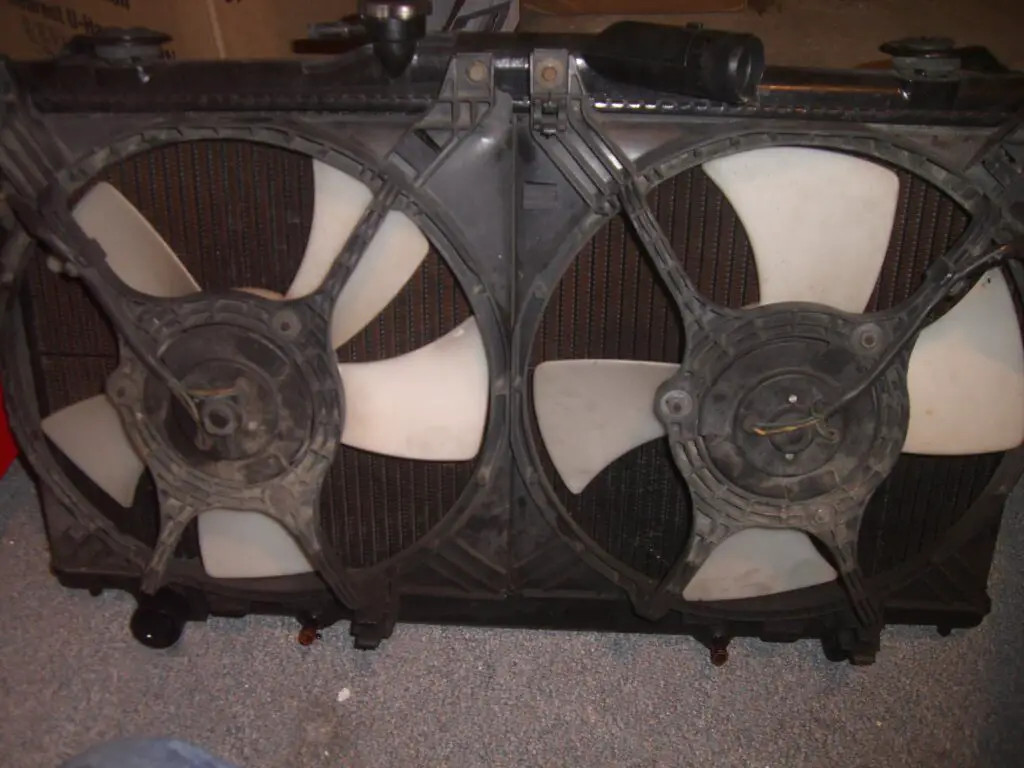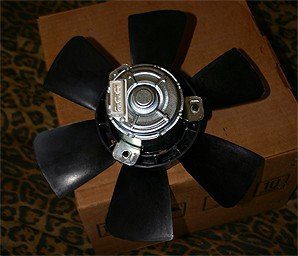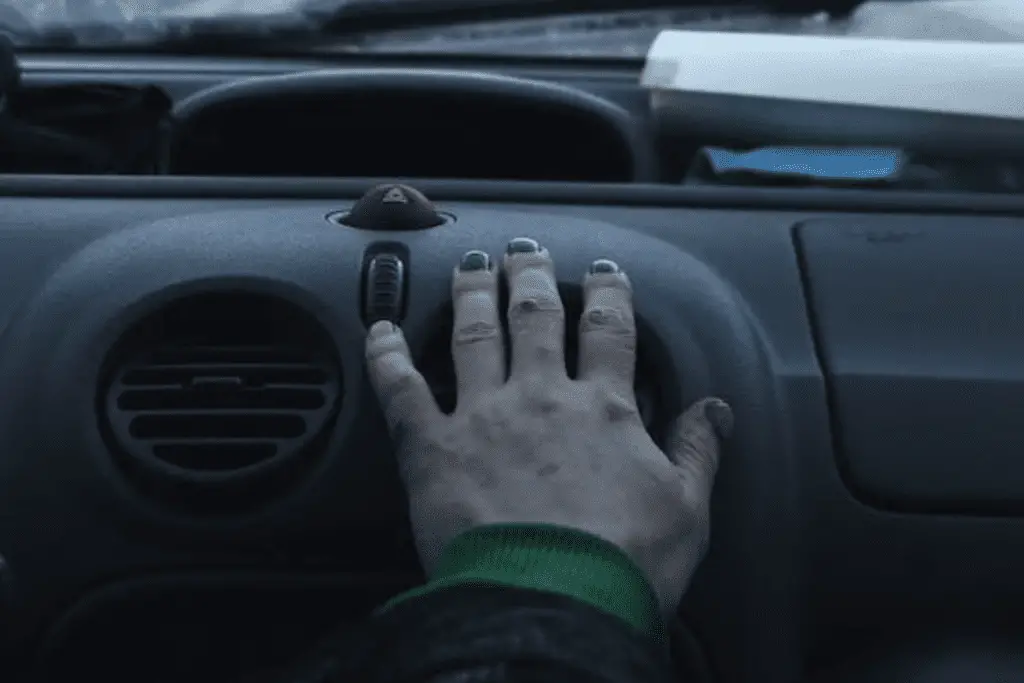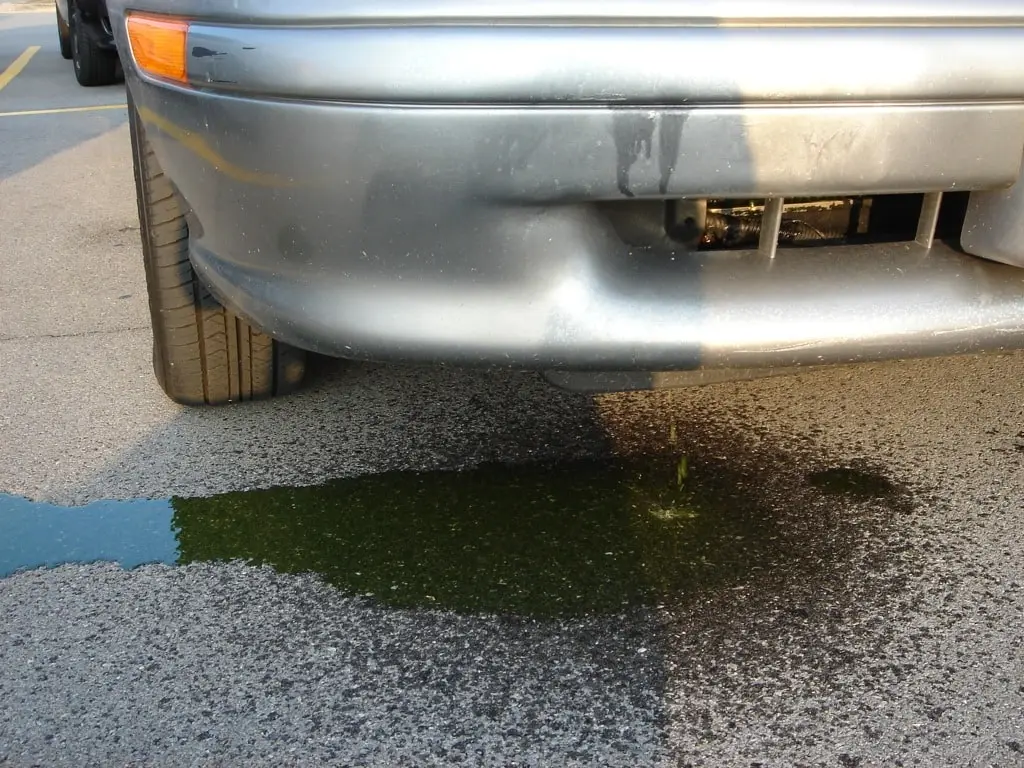You head out to your parked car, keys in hand ready to run some errands. But as you approach, a familiar sound gives you pause – the subtle whirring of the engine fan still running when car is off
While an engine fan continuing to run after the ignition is turned off is normal for a few minutes, one that persists can quickly get annoying. And worse, it could signal problems brewing with your cooling system or electronics.
Let’s explore what’s causing your fan to ignore the engine off memo, tips to finally silence it, and when it’s time to call in a pro.
Is It Normal for the Fan to Keep Running After I Shut Off the Car?
Car Fan Still Running When Car Is Off. Before assuming your persistent fan is a problem, it helps to understand what’s considered normal operation.
In most modern vehicles, it’s perfectly common for the electric radiator fan to keep humming along for 5 to 10 minutes after the key is turned to the off position.
This allows it to continue pulling air through the radiator, bringing down temperatures in the engine, cylinder head, and other piping hot components that build up heat soak while driving.
Think of it as the fan helping your engine cool off and catch its breath after a tough run before it can comfortably take a rest.
Factors like outside air temperature, engine size, coolant capacity and the vehicle’s designed airflow dynamics all impact how long the fan needs to run during this cool down phase.
For example:
- Smaller engines require less time, whereas heavy-duty or high-performance engines need more.
- Hot days cause things under the hood to heat up more, extending the cooling off period.
- Quick stops after high speeds don’t allow the engine to gradually cool, prolonging the fan’s job.
So in general, the optimal normal running time is 5-15 minutes after cutting the ignition, depending on conditions.
Car Fan Still Running When Car Is Off. But there are always exceptions. Some vehicle makes like BMW and Mercedes-Benz are designed for more extensive cool down cycles, so their fans may run for 15-30 minutes before finally shutting down.
When You Should Start to Worry About the Fan
While up to 15 minutes is often completely normal, if your fan continues humming for 30+ minutes with the car off, it’s usually a sign of trouble brewing.
Possible causes include:
- Cooling system issues leading to overheating
- Electrical problems disrupting the fan control circuit
- Mechanical defects within the fan assembly itself
Left unchecked, a constantly running fan can drain your battery, cause extensive engine damage from overheating, or leave you stranded.
So if your fan won’t take a break after a lengthy cool down period, don’t just brush it off – getting to the root issue is important!
Mechanical Issues That Lead to Extended Fan Operation
Let’s explore some common mechanical problems that cause the engine to overheat, triggering the fan to remain on high alert trying to cool things down:

Insufficient Coolant Levels
The cooling system needs the proper 50/50 mix of coolant and water to function optimally. Low levels lead to inefficient cooling and overheating.
Tip: Check the coolant reservoir tank level and top it up if needed. Also watch for leaks.
Faulty Water Pump
This vital pump circulates the coolant. If the impeller is damaged or it’s leaking, coolant flow suffers.
Tip: Watch for leaks or odd coolant noises as clues to a failing pump.
Thermostat Stuck Closed
The thermostat regulates coolant flow and fails to open when it should, leading to overheating issues.
Tip: Replace the thermostat if you suspect it’s stuck shut and not opening.
Coolant Leaks
Any leaks or cracks in hoses, gaskets, the radiator or heater core will hamper circulation, allowing heat to build up.
Tip: Visually inspect the system for leaks and wet spots. Have any segments or gaskets replaced promptly.
Clogged Radiator
Debris like leaves, bugs and dirt stuck in the radiator fins blocks airflow, reducing its ability to shed heat.
Tip: Use a garden hose or compressed air to gently clean out built-up gunk from the radiator.
Head Gasket Failure
A blown head gasket allows coolant to leak into the cylinders. This leads to overheating and white exhaust smoke.
Tip: Have the damaged gasket replaced immediately to prevent extensive engine damage.
Car Fan Still Running When Car Is Off. Solving any mechanical issues and leaks allows the cooling system to work as designed, helping the engine maintain normal operating temperatures so your fan isn’t forced to work overtime.
Electrical Gremlins That Disrupt Fan Control
Since most engine cooling fans are electric, electrical issues can also cause it to stay on contrary to normal operation:
Faulty Coolant Temperature Sensor
This sensor reports the engine temp to the computer. If inaccurate, the computer misreads conditions and over-engages the fan unnecessarily.
Tip: Replace old, questionable sensors that may be giving false high temp signals.
Fan Control Module Malfunction
The module dictates fan operation based on sensor inputs. Internal issues may erroneously command it to remain on.
Tip: Swap in a known-good module to test if it stops erratic operation.
Stuck Relays
Power relays that get welded shut in the on position will constantly power the fan regardless of actual engine temperature.
Tip: Check and replace any suspect fan control relays stuck closed.
Electrical Shorts
Damaged, frayed wiring that’s shorting out can continuously feed the fan full power even when the engine is off.
Tip: Inspect wires for breaks, corrosion, damage. Repair or replace problem segments.
Fan Fuse Blown
No electric power will reach the fan if its fuse is blown, causing it to appear stuck off when driving.
Tip: Test and replace the fan fuse if you find it’s blown.
Car Fan Still Running When Car Is Off? Pinpointing and resolving any electrical issues helps ensure your fan responds properly to changes in coolant temperature.
Mechanical Defects Within the Fan Itself
While not as common, physical damage to components in the fan assembly can also lead to run-on operation:

Bent Fan Blades
Imbalanced, damaged blades may spin unevenly and put stress on the motor components.
Tip: Carefully straighten or replace any bent blades causing wobble.
Seized Bearings
Worn out bearings inside the fan motor can seize up and prevent the fan from powering down.
Tip: Listen for grinding noises that signal damaged bearings needing replacement.
Damaged Fan Clutch
The clutch allows the fan blades to disengage from the motor when cooling isn’t needed. Issues here will keep it engaged.
Tip: Replace a malfunctioning fan clutch that’s not allowing proper disengagement.
Faulty Fan Motor
Problems with the motor windings or electrical contacts can cause it to remain on regardless of external signals to turn it off.
Tip: Test motor resistance and continuity with a multimeter or have it replaced if faulty.
Although not as likely, ruling out physical fan problems is important to get to the root cause.
Quick DIY Checks and Fixes
Before taking your car into the shop, there are basic DIY troubleshooting steps worth trying:
- Let the engine fully cool down for at least 30 minutes after driving before assuming the fan is stuck.
- Top up any low fluids like coolant, transmission or oil that could indirectly lead to higher temperatures.
- Visually inspect the fan blades for damage and clear any debris like leaves stuck in them.
- Wiggle or reconnect any loose sensor electrical connectors related to the fan control circuit.
- Use a multimeter to check the electrical signals from sensors to isolate a potential bad sensor.
- Test or swap out the fan motor relay or control module with a new replacement to rule them out as culprits.
- Check the fuses powering the fan control circuit and replacement any that are blown.
Car Fan Still Running When Car Is Off? While not definitive repairs, these simple checks can potentially pinpoint an obvious culprit and at least provide temporary relief in some cases. But don’t ignore persistent fan operation!
When Should You Call in a Professional Mechanic?
While some overheating causes can be DIY investigations, more complex issues require a certified technician to diagnose and repair:
- If the fan requires internal motor or other physical repairs.
- For major coolant leaks or radiator/thermostat replacements.
- If the fan stays on regardless of normal coolant temps.
- Strange electrical faults evade troubleshooting.
- Engine overheats with no clear cause found.
- Oil appears contaminated signaling head gasket failure.
- Fan problem persists after sensor/relay replacements.
- The battery was drained by the constantly running fan.
With the proper tools and know-how, a professional can accurately assess even difficult electric fan issues, advise if replacement is required, and get your cooling system running right once again.
Tips to Prevent Overheating Issues
Car Fan Still Running When Car Is Off. With some preventive maintenance and system inspections, you can minimize overheating issues that lead to a fan sticking on after engine shut down:
✅ Check coolant level/condition and flush/change it per maintenance schedule
✅ Replace the thermostat every 3-4 years or sooner if faulty
✅ Inspect hoses, radiator, pump for leaks/damage and address any found
✅ Clean debris from the radiator fins and fan blades
✅ Test fan operation when starting the engine
✅ Listen for odd fan noises indicating potential damage
✅ Check sensor and electrical connections to ensure they’re solid
Staying on top of routine system checks will help nip overheating issues and fan problems in the bud!
Why is My Fan Still Running When the Car is Off? – A Recap
Car Fan Still Running When Car Is Off. To recap, the main reasons an engine fan continues running after the car is turned off include:
- Insufficient cooling – Low coolant, leaks, bad water pump allows overheating.
- Electrical issues – Faulty sensors, bad modules, wiring shorts confuse the fan.
- Mechanical damage – Problems with fan blades, bearings, clutch or motor.
While a 5-15 minute wind-down is normal, extended operation indicates diagnostics and repairs are needed for optimal operation.
The Bottom Line – Car Fan Still Running When Car Is Off
It’s annoying climbing into a hot car, ready to hit the road only be greeted by the humming of a still spinning engine fan.
While designed to aid cool down after engine shut off, extended running can signal lurking issues. Don’t ignore persistent fan operation – a quick diagnosis combined with routine maintenance can nip problems in the bud.
Car Fan Still Running When Car Is Off. Keeping your cooling system in top shape ensures your electric fan works as designed – cooling while driving but taking a break when you switch off the key. Your engine will thank you!
FAQs – Car Fan Still Running When Car Is Off
Q: Why is my fan still running when the car is off?
A: The main reasons a fan continues running after the car is turned off are insufficient engine cooling, electrical issues like a faulty sensor or module, and mechanical problems within the fan assembly itself. Insufficient cooling due to low coolant levels or leaks forces the fan to run longer to maintain safe temps. Electrical issues can confuse the fan control circuit and cause it to remain on. And damage to fan components like blades, bearings or the motor can physically cause it to keep spinning regardless of ignition power.
Q: Is it normal for the fan to stay on for a few minutes after the car is turned off?
A: Yes, it’s completely normal for the radiator fan to continue operating for 5-15 minutes after the ignition is switched off in most vehicles. This allows it to cool down residual engine heat that builds up after driving. Some vehicles are designed to run even longer – up to 30 minutes. But more than 30 minutes typically indicates a mechanical or electrical issue is forcing the fan to stay on.
Q: What should I do if my engine fan continues running 1 hour after the car is turned off?
A: An engine fan still spinning over an hour after the car is off definitely signals a problem needing diagnosis and repair. As a temporary fix to prevent battery drain, disconnect the battery while troubleshooting the cause. Check coolant levels, electrical wiring and fuses, fan blades for damage, listen for odd noises, and monitor the temperature gauge for high readings that could mean a stuck thermostat or bad sensor is causing overheating issues. Professional diagnosis is recommended to properly identify and repair the specific issue.
Q: Will a constantly running fan drain my car’s battery?
A: Yes, if the cooling fan remains on indefinitely due to a malfunction, it can completely drain the battery over time. This is because the alternator doesn’t recharge the battery when the engine isn’t running. It’s best to disconnect the battery temporarily to prevent discharge until the fault is identified and resolved.

